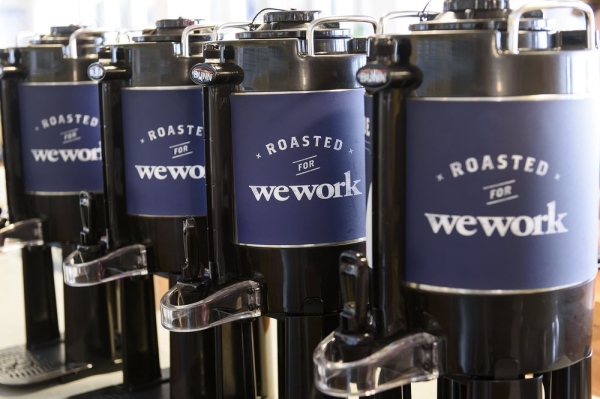
Settlement Secures Full Release of Over 1,400 Employees Nationwide from Non-Competes & Eases Restrictions in Existing Non-Competes for Another 1,800 Employees Nationwide
Chicago —(ENEWSPF)—September 18, 2018
By: Rosemary Piser
Attorney General Lisa Madigan announced today that a settlement has been made with WeWork Companies Inc. (WeWork) to end the company’s use of overly broad and unfair non-compete agreements for nearly all of its employees nationwide. WeWork, which provides a network of shared spaces for rent and associated services to clients in 88 global cities, has eight locations in Chicago and approximately 100 Illinois-based employees had previously required all employees in Illinois to sign such agreements.
Attorney General Madigan said, “WeWork’s non-compete agreements restricted employees by preventing them from moving into new job opportunities. Today’s settlement puts an end to WeWork’s unnecessary use of non-compete agreements and removes career obstacles for current and former employees, allowing them to make better decisions for their lives.”
Prior to this settlement, WeWork used non-compete agreements that prohibited all employees from working for competitors after leaving the company. The non-compete agreements not only applied to executive and senior staff, but to all levels of employees, including cleaners, mail associates, executive assistants, and baristas, some of whom are paid as little as $15 an hour.
Today’s settlement fully releases over 1,400 employees nationwide from their non-compete agreements. In addition, nearly 1,800 other employees who were previously bound by overly broad non-competes will now enter into agreements with far less restrictive terms. For these employees, the settlement requires WeWork to shorten the non-compete period from one year to six months; dramatically reduce the geographic restriction from any geographic areas in which WeWork operates to a 15-mile radius of those locations engaged in the business lines in which the employee worked; and narrow the scope of activity the employee is restricted from engaging in to only the type of work the employee did for the company. These 1,800 employees include community leads, community managers, interior designers, architects, senior software engineers and more. WeWork must also notify all current and former employees still subject to a non-compete agreement of these changes so that employees are aware of their options.
The New York Attorney General’s Office worked with Madigan to reach a coordinated resolution of the two investigations.
“Workers should be able to take a new job without living in fear of a lawsuit from their former employer,” said New York Attorney General Barbara Underwood. “Yet too often, non-compete agreements are misused, especially when it comes to low-wage workers – limiting employees’ mobility and opportunity and preventing businesses from hiring the best person for the job. Today’s settlement is a key step forward for WeWork’s thousands of employees in New York and across the country, and should serve as an example for all businesses as we continue our efforts to end the use of these overly broad non-competes.”
Illinois law prohibits the use of non-compete agreements unless:
- the agreements are no greater than necessary to protect a legitimate business interest of the employer, and
- the subsequent restrictions are reasonable as to their duration, geographic area and scope of prohibited activities.
Illinois courts look at the particular circumstances of an employee’s job title, access to proprietary information and other factors to determine whether a non-compete agreement is permissible. The Illinois Freedom to Work Act also expressly prohibits use of non-compete agreements for employees earning minimum wage or less than $13 an hour.
According to federal reports, non-compete agreements impact approximately 30 million U.S. workers, or nearly one in five American workers, including roughly one in six workers without a college degree. In response to growing misuse of non-compete agreements, Madigan has provided additional guidance about non-compete agreements.
Employees who believe they are subject to an overly broad non-compete agreement are encouraged to contact Madigan’s Workplace Rights Bureau at 1-844-740-5076 or [email protected].
Source: www.illinoisattorneygeneral.gov








